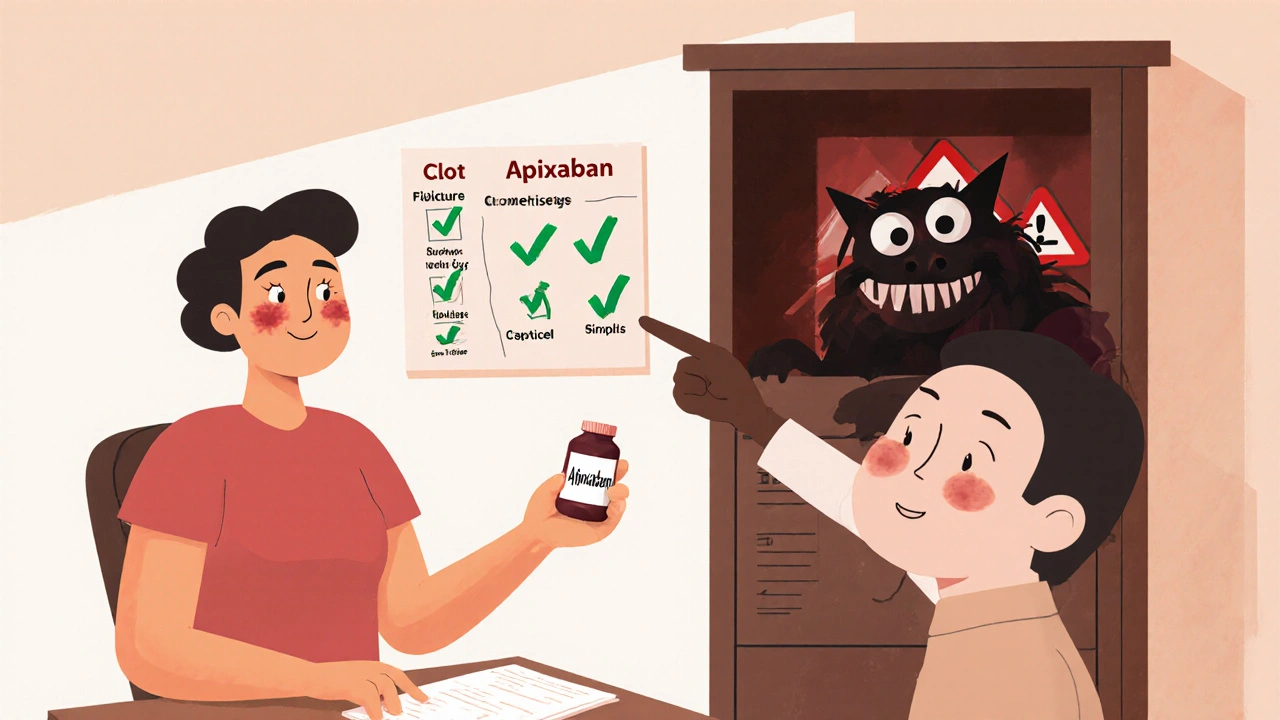Blood Thinners: What They Are, How They Work, and What You Need to Know
When your blood clots too easily, it can lead to dangerous blockages — and that’s where blood thinners, medications that reduce the risk of dangerous clots by slowing down clotting processes. Also known as anticoagulants or antiplatelets, they don’t actually make your blood thinner — they just keep it from clotting too fast. These drugs are prescribed for people with atrial fibrillation, deep vein thrombosis, pulmonary embolism, or after heart valve replacements. If you’ve been told you need one, you’re not alone — millions take them every day to stay safe.
Not all blood thinners work the same way. Warfarin, an older anticoagulant that blocks vitamin K to slow clotting requires regular blood tests to keep your dose right. On the other hand, aspirin, a common antiplatelet that stops platelets from sticking together is often used for heart attack prevention and doesn’t need lab monitoring. Then there are newer options like rivaroxaban or apixaban — they’re easier to manage but cost more. Knowing which type you’re on matters because mixing them with NSAIDs or certain antibiotics can raise your risk of bleeding, something we’ve seen in posts about fluoroquinolone and NSAID interactions.
Side effects aren’t rare — bruising, nosebleeds, or unusual bleeding are signs you should watch for. Some people need to avoid certain foods or supplements, especially if they’re on warfarin. Others might need to adjust their exercise or dental care routines. The good news? Most people take these meds safely for years with the right guidance. What you’ll find below are real comparisons: how one blood pressure drug might affect clotting, how weight impacts medication safety, and how to track FDA warnings that could change your treatment. These aren’t generic lists — they’re practical guides written for people who need to understand what’s in their medicine cabinet and why.

Falls Risk on Anticoagulants: How to Prevent Bleeding Without Stopping Blood Thinners
Falls shouldn't stop you from taking blood thinners. Learn why stopping anticoagulants for fall risk increases stroke danger-and how DOACs, fall prevention, and proper risk scores can keep you safe without compromising protection.
read more
Cosmetic Procedures and Anticoagulants: What You Need to Know About Bruising and Bleeding Risks
Learn the truth about blood thinners and cosmetic procedures: stopping them can be more dangerous than keeping them. Find out which medications are safe to continue and what procedures carry real risks.
read more